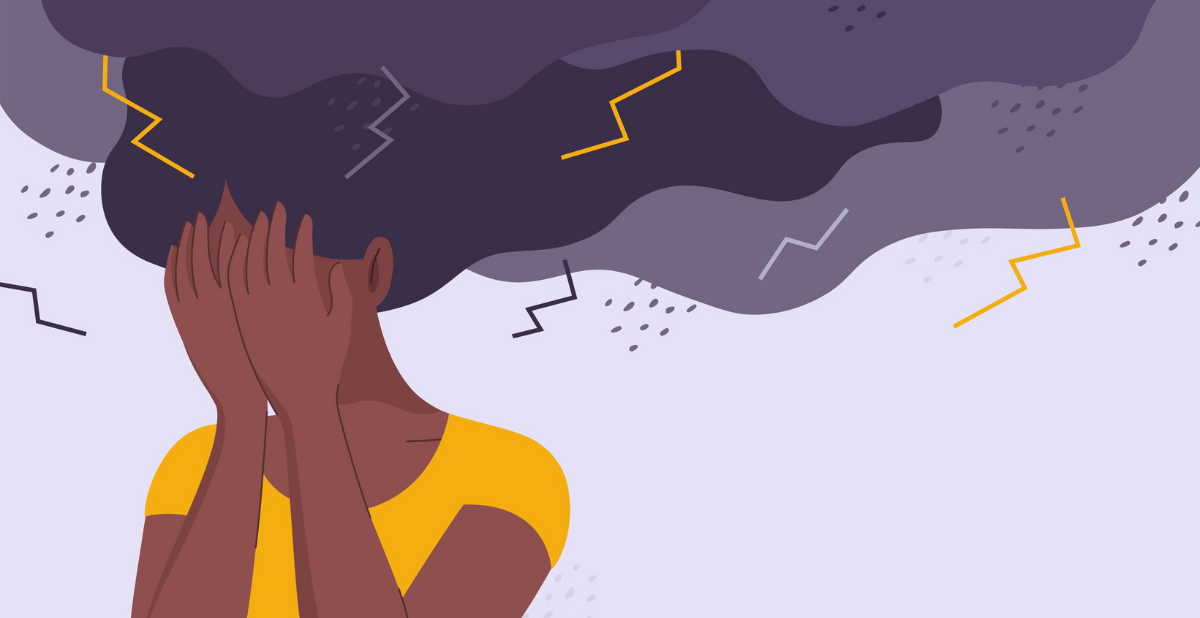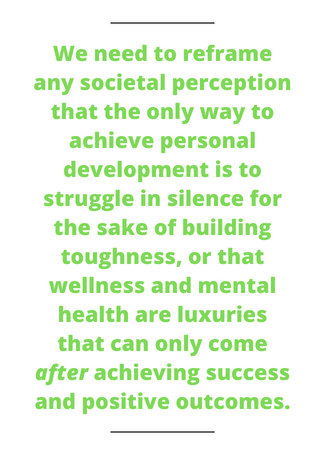Jenna Quaranta: Promo Leaders Must Protect Teams From Burnout

(Editor’s Note: PPAI Media’s Voices series introduces the opinions and advice of promo industry influencers. The opinions and ideas belong to the individual writer and may not represent those of PPAI or their respective employer.)
When people speak about their personal development, it’s usually in service of reaching some desired goal – a certain salary, job title or major client deal. We grow and stretch ourselves in the process, but there is a toll to be paid, a grind to be endured.
In promotional products and many industries, the road to reaching these definitions of achievement is often hidden in the shadows. We grin and bear it, telling ourselves that it’s worth it to work longer, harder hours than the competition. Stoicism is all the rage these days.

Most of us were raised on the idea that success comes only from hard work, and the idea of being burned out is a sign you have succumbed to the pressures that define whether you’re a success or failure. Now, this is not to discount that success comes from effort and hard work. I know first-hand that it does.
But it’s equally important not to undervalue the role wellness plays on the road to success.
I’m a survivor of our nation’s largest mass shooting on record, the Route 91 Harvest Festival. In my ongoing education to deal with my own PTSD, the trauma and experience empowered me to realize the impact I can make for others. So I became a Certified Mental Health Ambassador.
Through this, I started to recognize patterns between my own experiences and the struggles others have shared in their professional lives, which often spills into affecting personal life too. That’s when I started seeing the pervasiveness of burnout.
Burnout is real. Its causes and effects take hold differently for each of us. There’s no singular formula for identifying or resolving it. Burnout can develop over time due to prolonged period of stress or a high level of pressure beyond what a person can manage. Anyone in sales is particularly at risk; the demands come from all angles.
MORE FROM JENNA QUARANTA: How The Best Salespeople Handle Prospecting
Leaders must guard their teams against burnout. Burned out employees cannot function as they normally would, and burnout can easily spread to other individuals or teams; it’s contagious. Beyond performance issues, the overwhelm leads to more sick days, interpersonal conflict and turnover.
View this post on Instagram
As leaders, talking about the effects of burnout is not enough. Support comes from the culture of the organization.
Improved connection with your employees and increased positive engagement amongst your teams show active support. You can also lead by example to reduce the guilt that many employees feel for taking the breaks they need or even taking PTO. A supportive, healthy environment can only exist with conscious and meaningful communication around the subject.
Celebrating success often is also important, leading to team and organizational attachment. This shouldn’t happen only when things are going well. In fact, demotivation and a sense of loneliness easily creep up when pressure is high and things are not going well, so it is even more important to celebrate the little successes during tough times. This requires paying attention and including empathy in your corporate culture.
As for how to deal with your own burnout, recognizing it as it approaches is important. Prevention means allowing yourself to take breaks and set time for yourself. Wellness can mean prioritizing the need to eat healthy, exercise, get plenty of sleep and avoid toxic social media. Don’t marginalize your own feelings and tell yourself that the moment you reached a breaking point is just a one-off or that you can push your feelings down and handle it all internally.

These words come from my own experience. I know firsthand the positive impact it makes to be offered a safe space by your leader and company to talk about your challenges or take the time needed to manage your own wellness. I have seen the difference this made for me and for others.
Wellness and mental health should be treated as must-haves, not nice-to-haves.
We need to reframe any societal perception that the only way to achieve personal development is to struggle in silence for the sake of building toughness, or that wellness and mental health are luxuries that can only come after achieving success and positive outcomes.
Instead, wellness and mental health should be viewed as the foundation to success and personal growth. Being aware of yourself and taking care of your own needs is a strength, not a weakness.
Quaranta is the vice president of sales and business innovation at supplier KNOSS Apparel. She made her debut on the PPAI #Online18 list of the industry’s best follows on social media in 2023.

